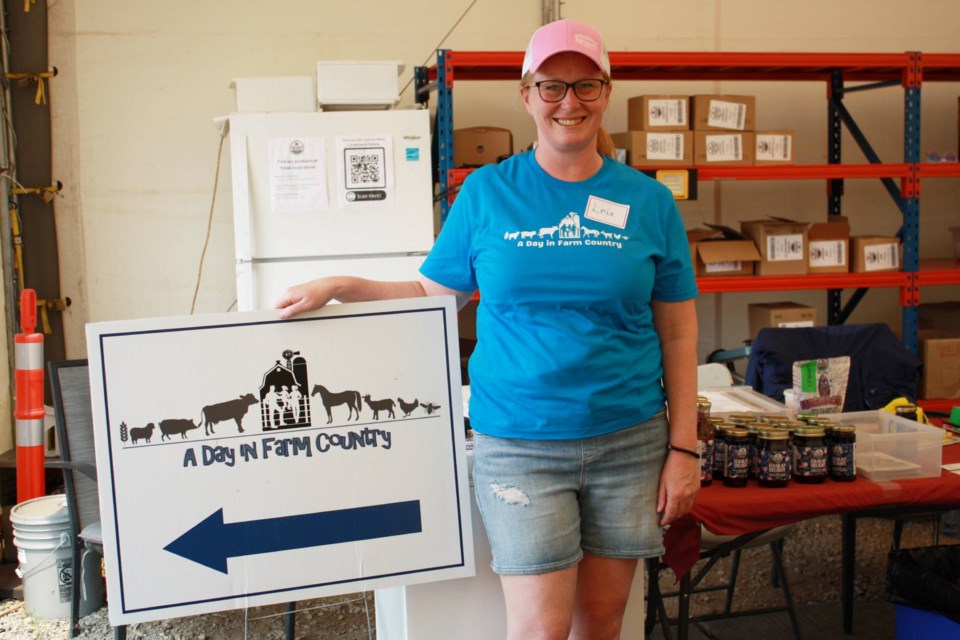A perfect sunny Saturday was the backdrop for agritourists’ glimpse into the workings of local farms during the Northern Ontario Farm Innovation Alliance’s (NOFIA) seventh annual Day in Farm Country Aug. 2.
The self-guided tour down the country roads of Temiskaming Shores offered participants photo ops with the dairy cows at Loranlee Farms, info about local beef science at the Ontario Beef Research Centre, a delicious lunch amidst lush fields at Phillips Seeds, and the chance to pick their own samples of haskap berries at Arana Orchards.
“The event welcomes the general public on-farm to better understand agriculture in Temiskaming Shores…. [It’s] a great opportunity to showcase one of the top three industries in Northern Ontario,” Rachel Kehoe, NOFIA’s communications and events coordinator, told Northern Ontario Business.
Kehoe said the tour yearly draws between 400 and 500 people, making it a great way for NOFIA to build awareness of and trust in the local agriculture sector, furthering the non-profit’s mandate to develop strategies and partnerships to ensure the advancement of agricultural innovation and research in Northern Ontario.
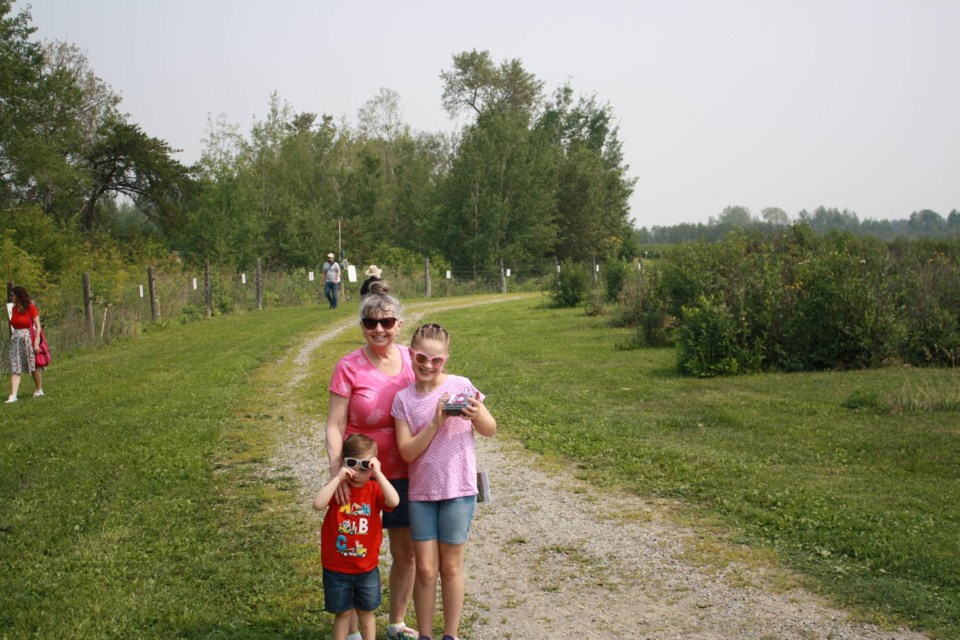
In addition to providing education for the public, the event also helps draw attention to agri-food products produced in the region during a time of growing interest in local food, said NOFIA’s executive director, Emily Seed.
“Less than two per cent of the population works in agriculture, meaning the majority of our population is separated from where their local food comes from,” Seed said.
“It’s important to make those connections and invite the public to come out and learn about agriculture. It builds more trust in our food system and opens people to the vast opportunities within the agriculture industry.”
SEE: ‘A Day in Farm Country’ draws curious crowds in support of Temiskaming agriculture
This year’s horticulture stop, Arana Orchards in downtown Temiskaming Shores, was a tour highlight, providing the public with the opportunity to pick their own free samples of haskap berries.
The 32-acre orchard owned by the Losereit family has been building its crops since renovations and improvements to irrigation in 2015. The orchards now feature 20,000 haskap plants and 5,000 sour cherry trees.
The haskap, known as the “berry of long life,” has gained increasing popularity as an emerging market in recent years due to its nutritional value and high antioxidants.
“We’re hoping, through the variety and diversity of the stops, that folks are amazed at how much production is actually happening in the area,” said NOFIA’s project development advisor, Leia Weaver, who was onsite at the orchards to answer questions. “A lot of people don’t have an intimate connection to farms anymore, so it’s a good opportunity.”
At Phillips Seeds Ltd., which has been in operation since 1985, father and son owner-operators Terry and Chase Phillips gave guests an up-close view of each seed variety, including the oat and barley strains they cultivate for quality and genetic purity.
Chase Phillips said he and his father wanted to help guests feel a connection to the crops that surround the Temiskaming District.
“We wanted to have hands-on props so when people drive by different fields they can understand what soybeans or wheat look like,” he said.
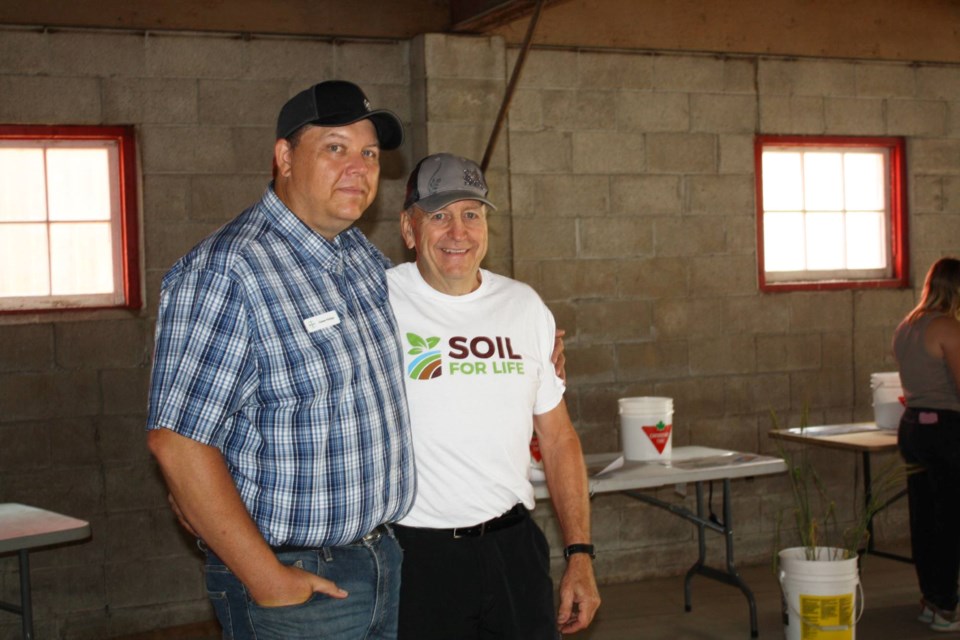
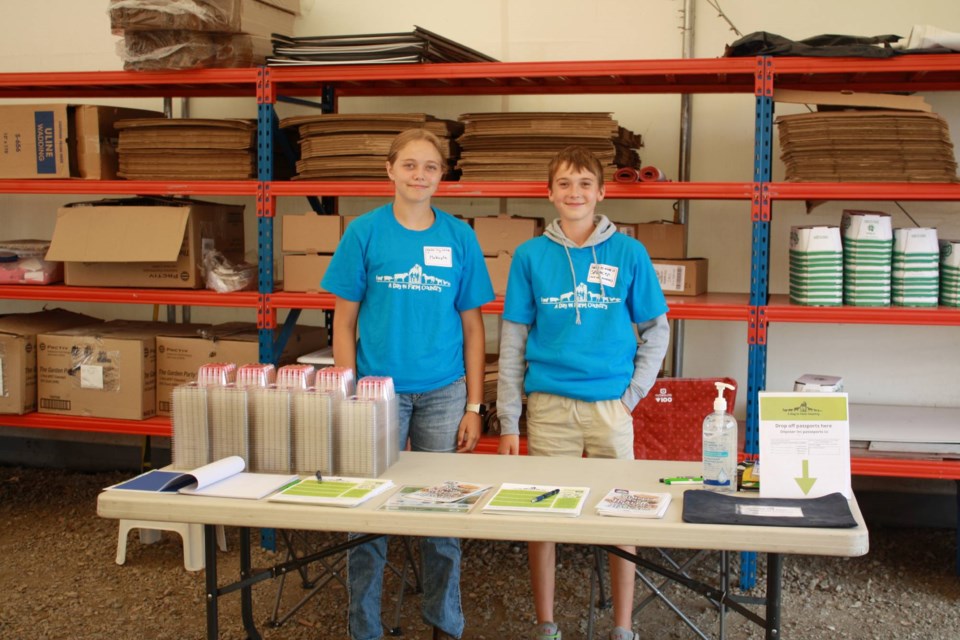
AgScape, an organization that acts as the voice for Ontario agriculture in classrooms, was also onsite at Phillips Seeds to provide information about career opportunities in the industry.
“A common conversation we have is that careers in food production aren’t just about being a farmer,” said AgScape project coordinator Lianna Manes. “People have been very surprised to find that careers like drone operator or food photographer or stylist are agriculture careers.”
Phillips Seeds also provided the perfect venue for a multicultural fundraising lunch put on by One Light Diversity Centre, a non-profit that offers settlement services in Temiskaming Shores.
Guests at Loranlee Farms Ltd. were encouraged to ask questions about the Lely milking equipment used to milk the farm’s 180 dairy cows.
The family-owned farm, which also grows 2,000 acres of crops like alfalfa, hay, wheat, canola, soybeans, oats, and corn, has been in operation for over 100 years, and is currently run by Basil and Mary Loranger, their son Sam, his spouse Meagen, and their four children.
“[Guests] have been asking about how cows are milked and what kind of things they eat,” said volunteer Taylor Antoniak, who said she’s noticed an increased interest in local food in recent years. “Lots of people have better questions than in previous years.”
“I think people have more interest in what it takes to make our food and the effort and financial risk that includes,” said Monica Haase, a local enthusiast who has been attending the tour every year since it started. “It’s a good experience for families, especially if they’re living in the city.”
“It’s a great way to get your family out, and something for the kids to enjoy,” said Paul De Jong, president of the Beef Farmers of Temiskaming.
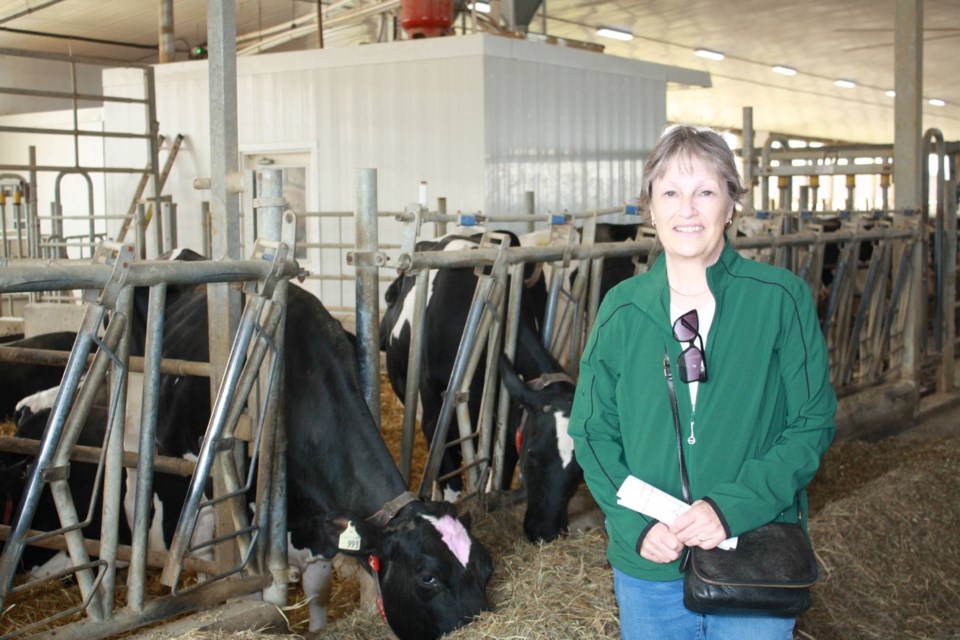
De Jong was onsite at the Ontario Beef Research Centre stop to give information about the health and the nutritional aspects of raising local beef.
The centre is managed by the University of Guelph through the Ontario Agri-Food Innovation Alliance. It was originally established in 1922 by the Ontario government, and consists of 340 acres, two barns, and a hydraulic squeeze system for handling and weighing cattle.
De Jong hopes the tour will raise public awareness of the ethical nature of small scale beef farming and how it contributes to local agriculture.
“People mostly want to know the difference between farming now and 40 years ago,” said De Jong. “Livestock farming has a positive aspect of environmental stewardship. A lot of beef is grazed on land that isn’t suitable for other agriculture.”
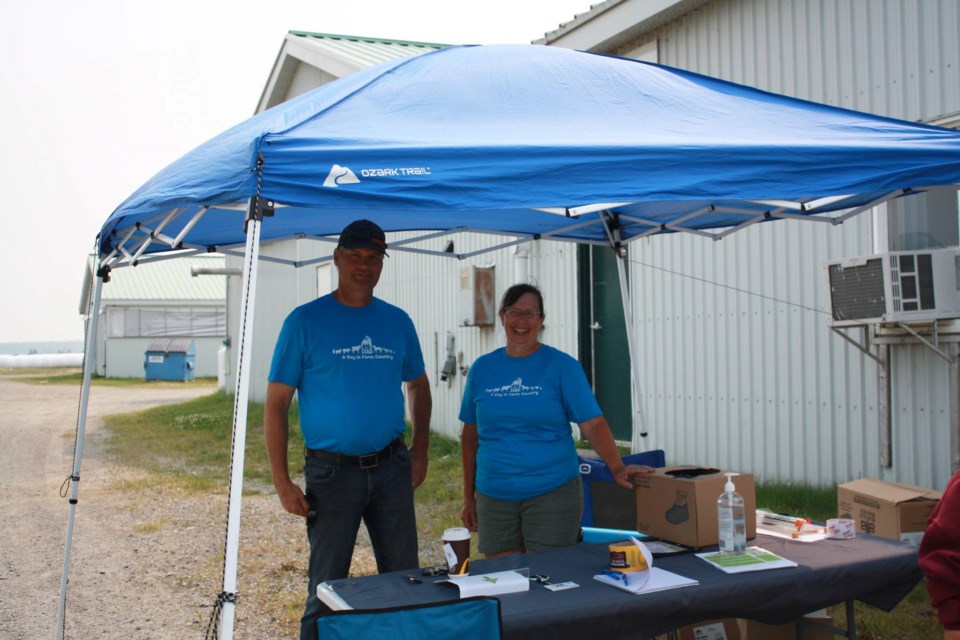
Though the event was facilitated by NOFIA, it was local commodity groups like the Beef Farmers of Temiskaming that fielded the volunteers, provided the educational information, and chose the stops that best represented each of the area’s individual industries, said Emily Seed.
Seed predicts agritourism events like A Day in Farm Country will be on the rise in the future in Northern Ontario.
In addition to being popular with the public, agritourism has great potential to help small-scale farms thrive in a time where the widening gap between large-scale and small-scale farming is causing small scale farmers to search for ways to diversify.
“To be profitable on a small-scale farm, oftentimes you need to think outside the box and be very diversified,” Seed said. “Agritourism is a great opportunity here.”

